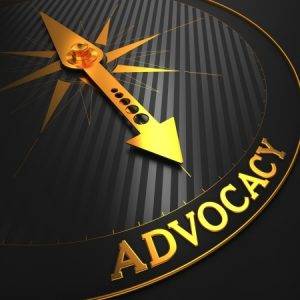Recovery Advocacy Is Not A Recovery Program
6/2/2017
 tashatuvango
tashatuvango
Of all the experiences I have had as a recovery advocate, none have been more heart-rending than receiving news that a person prominently involved in recovery advocacy efforts has died of a drug overdose. It reminds me once again that personal health and recovery are the foundation of all larger efforts to educate, advocate, and counsel within the alcohol and other drug problems arena.
This is not a new lesson. Consider, for example, the following stories. John Gough got sober in the Washingtonian revival of the early 1840s, but relapsed three times in the early period of his long career as America's most charismatic temperance reformer. The lawyer Edward Uniac always stated that he was more vulnerable to the call of alcohol during extended periods of rest than when he was moving from town to town giving his temperance lectures. But Uniac suffered repeated drinking episodes and died in 1869 of an overdose of whiskey and opium while on a temperance lecture tour in Massachusetts. Luther Benson tried to use his own personal struggles with alcohol in the temperance lectures he gave across the country. His tales of continued binge drinking while on the lecture circuit were penned while he was residing in the Indiana Asylum for the Insane. His 1896 autobiography was entitled, Fifteen Years in Hell. Benson truly believed that throwing himself into temperance work could quell his own appetite for alcohol. In retrospect, he was forced to admit the following:
I learned too late that this was the very worst thing I could have done. I was all the time expending the very strength I so much needed for the restoration of my shattered system.
The stories of Gough, Uniac, and Benson are not unique. Similar tales were told by others who sought to cure themselves on the temperance lecture circuit. However, recovering people did achieve and maintain stable recovery working in the 19th century temperance movement and within treatment institutions of that era. An important lesson emerged out of the 19th century recovery movements: service activity, by itself, does not constitute a solid program for continued sobriety. This lesson was relearned throughout the 20th century, particularly within the modern rise of addiction counseling as a distinct profession.
A New Recovery Advocacy Movement is spreading across America and beyond, leaving in its wake new grassroots recovery advocacy organizations and a fresh generation of recovering people and their families seeking new ways to carry a message of hope to those still suffering. To prepare themselves, this new generation would do well to review the stories of old. The enduring message in all of these stories is clear: Working as an addictions educator, advocate, or counselor does not constitute a program of personal recovery. Those who forget that lesson court injury to themselves and to the very movements to which they claim allegiance. The key to effective recovery advocacy is first and foremost the primacy of personal recovery.